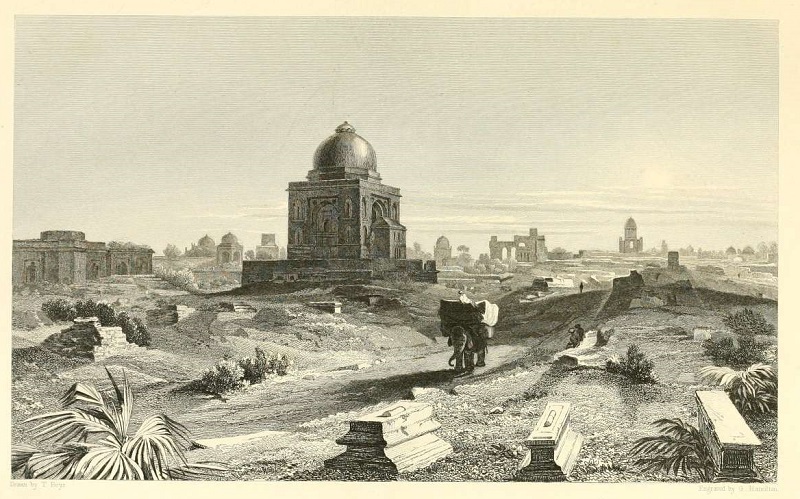FWP:
SETS == IDIOMS
INDEPENDENCE: {9,1}
For background see S. R. Faruqi's choices. For more on Ghalib's unpublished verses, see the discussion in {4,8x}.
Well, Zamin gives us daaman zer-e sang aanaa (as well as an inferior revision of the verse), and Gyan Chand gives us patthar ke niiche daaman honaa , which he clearly identifies as 'an idiom'. Plainly there was some kind of Persianized idiom about 'having the garment-hem (trapped) beneath a stone' as an expression of powerlessness and coercion. As he does so often, Ghalib evokes this idiom without ever stating it explicitly; and as he does almost always, he invokes it in both its idiomatic sense and its literal meaning.
This verse very explicitly belongs to a group that I call 'independence' verses; for discussion and examples, see {9,1}. As the first line makes clear, one's spirit/courage may not wish to be under obligation, to be indebted, to owe a humiliating gratitude to a patron for his favor/generosity. But one is powerless to avoid it, even in death. Idiomatically, a man has no choice about it-- so to speak, he has his 'garment-hem (trapped) beneath a stone'; and literally, he cannot avoid being 'under' obligation because his shrouded body is helplessly pressed down beneath the heavy (but beneficent, and thus gratitude-demanding) stone of his tomb.
Compare the brilliant {230,7}, which makes similar use of a 'hand (trapped) under a stone'.

Asi:
The claim of spirit and courage is that no favor/kindness of anyone's would be taken [as a burden of obligation] upon its head. But alas, that in being under obligation the spirit/courage becomes entirely compelled, and by force is made to be under obligation. Thus to obtain a shroud is a form of being under obligation. Even if the spirit/courage would revolt against this, and turn its face aside from this favor/kindness, even then by coercion it is forced to take upon its head the favor/kindness of the garment-hem of the shroud, which is under the stone of the tomb. The layer of the stone of the tomb is in its own right equal to the garment-hem of a hundred shrouds. In this situation what can the poor spirit/courage do? It is forced to be under obligation.
A second meaning can be this: With regard to being under obligation, the spirit/courage becomes compelled. Look at the garment-hem of the shroud, which because of that obligedness is pressed down under the stone of the tomb.
== Asi, pp. 267-268